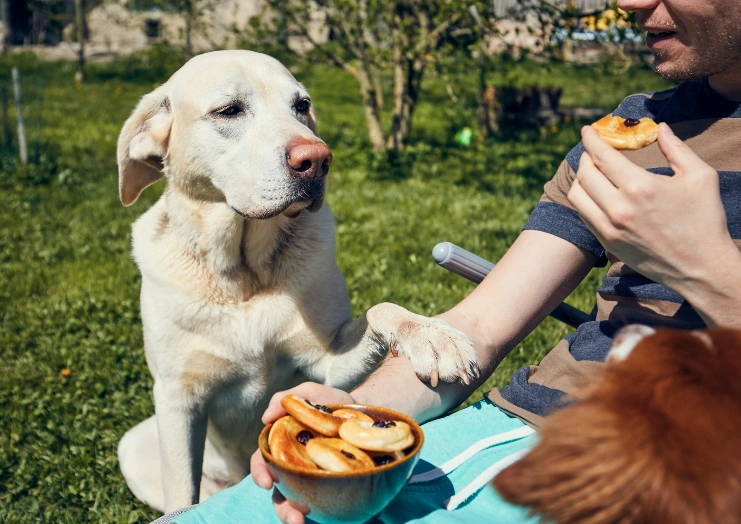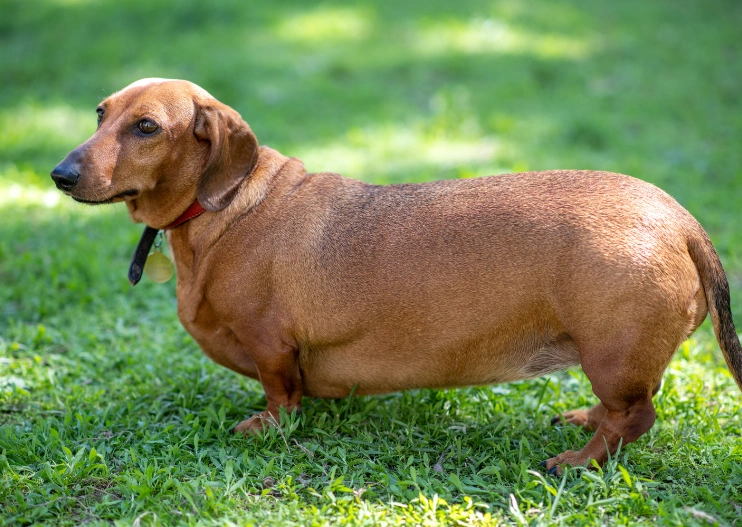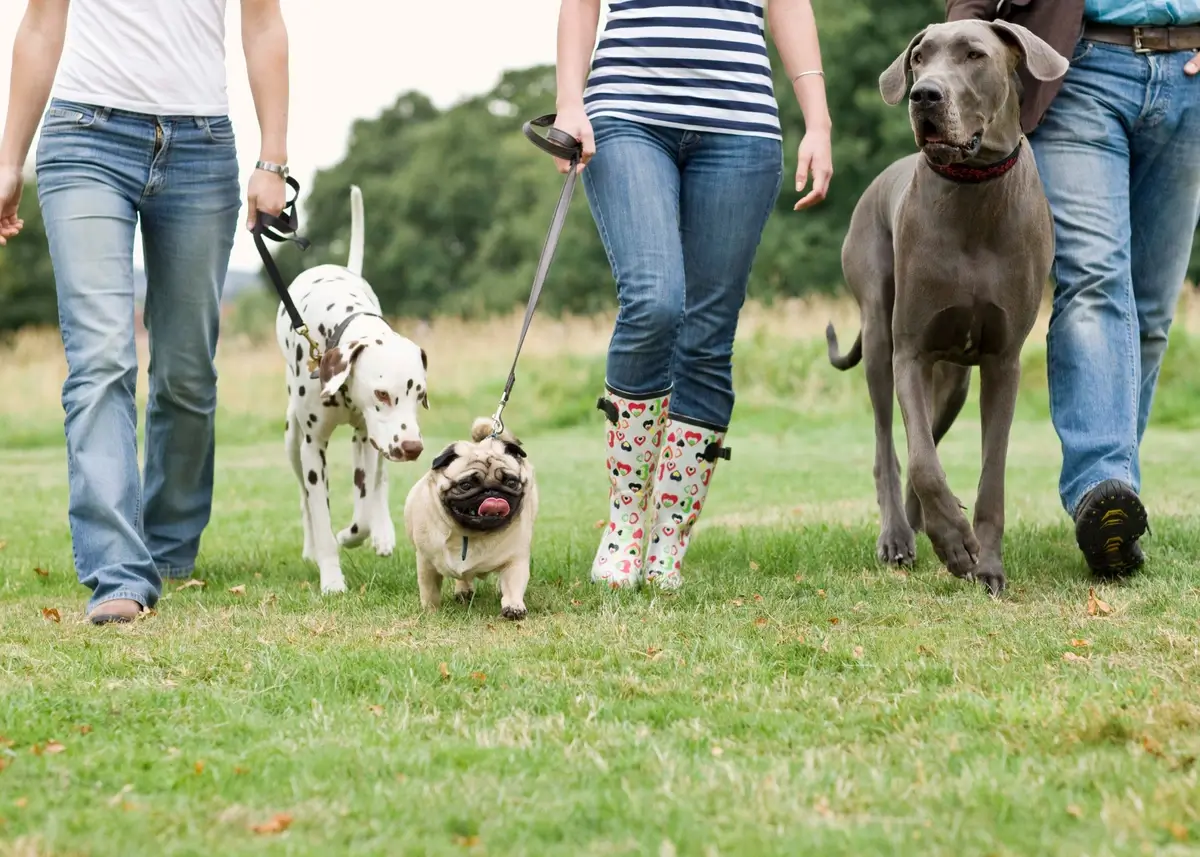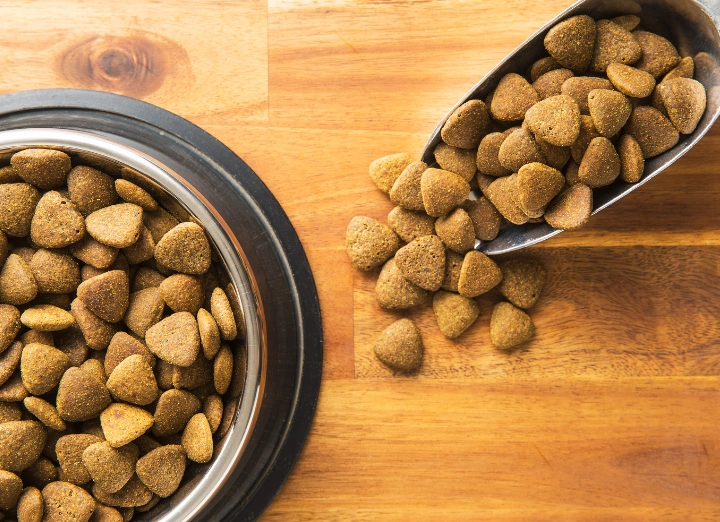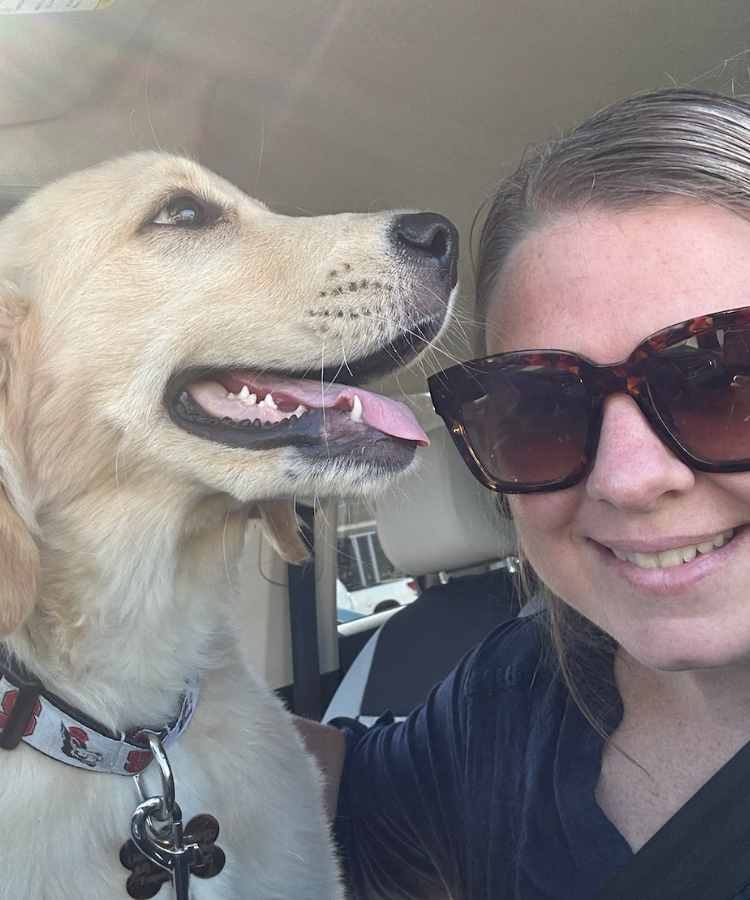“My Pug is so fat that he turned into a Husky!”
“My puppy is so fat that he chased after a school bus because he thought it was a Twinkie!”
Lame jokes aside, obesity in puppies is no laughing matter. We may think rolls on a puppy are cute, and they sure are – to a degree.
It’s normal for a puppy to have a roly-poly body with loose skin and some puppy fat. It’s especially true for some breeds that naturally have folds. However, as puppies rapidly grow, some can grow, well, too rapidly. If your vet tells you that your puppy is overweight or obese, you’ll need to change its habits – and quickly.
In the next few weeks, we’ll address various aspects of pet obesity, such as the dangers of obesity in dogs and relevant canine obesity statistics, to help us understand better canine nutritional and lifestyle habits. Today, find out reasons why your puppy is overweight and what to do about puppy obesity.
You never sausage a dog!
What Are Some Causes of Canine Obesity?
Maintaining a healthy weight is crucial for the overall well-being and longevity of your puppy. Some of these reasons are a direct reflection of your actions (or lack of actions) as a puppy owner, so there may be some hard truths you’ll need to confront within yourself to change your behavior to ensure a healthier puppy. Read these reasons with an open mind and a mindset of how you can help your puppy rather than feeling ashamed.
Overeating or eating the wrong dog food
One of the primary causes of canine obesity is excessive calorie consumption. Puppies may overeat due to a variety of reasons, including free-feeding (having access to food at all times), feeding high-calorie treats or table scraps, or simply having an insatiable appetite. If a puppy eats too quickly, owners will assume they’re still hungry and pour another scoop into the bowl. Owners may also forget they’ve already fed their puppies or someone else in the house may feed them twice by accident.
Oftentimes, new puppy owners aren’t sure when to switch a puppy to adult dog food. Puppy food is much more calorie and nutritionally dense than adult food, and puppies are often fed 3 times a day instead of 2. You may be overfeeding your puppy the wrong type of formula for their stage of life if you haven’t switched to adult dog food yet.
Overfeeding, whether intentional or unintentional, leads to an energy imbalance, where your puppy consumes more calories than it expends, resulting in unwanted weight gain.
It's important to establish a regular, daily puppy schedule for mealtimes, measure food accurately, and select a well-balanced diet suitable for your puppy’s age, size, and activity level.
Breed predisposition
Some dog breeds are more prone to weight gain than others. Certain breeds, such as Labrador Retrievers, Beagles, Pugs, and Bulldogs, have a genetic predisposition to obesity. These breeds often have a slower metabolism, a strong food drive, or a tendency to overeat, making puppy weight management more challenging.
Neutering/spaying
Before we begin, we do want to say we are advocates for spaying and neutering pets (and some breeders will require it in their contracts). However, there may be some effects to take note of so you can avoid an overweight puppy.
Spaying or neutering puppies can alter their metabolism and hormonal balance, leading to weight gain. After the procedure, a puppy's energy requirements may decrease, while their appetite may increase. If you don’t adjust your puppy's diet and exercise routine accordingly, obesity can develop. Your veterinarian will be able to help you monitor any weight changes after a medical procedure.
Lack of exercise
Insufficient physical activity is another significant factor in canine weight gain. Dogs require regular exercise to burn calories and maintain a healthy metabolism. If a puppy leads a sedentary lifestyle, lacks regular walks or playtime, or is confined to a small living space, it can result in weight gain over time.
Medical conditions
Certain medical conditions can contribute to weight gain in dogs. These medical issues may not be present in your puppy, but it’s still good to know about them. Hypothyroidism, a disorder that affects the thyroid gland and slows down metabolism, can cause weight gain even with reduced food intake. Cushing's disease, insulin resistance, and some hormonal imbalances can also result in weight gain. It's crucial to consult a veterinarian to rule out any underlying health issues.
Age
Even though we’re primarily discussing puppies, it’s important to note making sure your puppy is not overweight is a responsibility to them for the rest of their lives. As dogs age, their metabolism slows down, and they generally become less active. Consequently, their caloric needs decrease. If the dog's diet is not adjusted accordingly, excess weight can accumulate. Older dogs may also face mobility issues, making it difficult for them to engage in physical activities and burn calories.
Owner behavior
Dogs often mirror their owner's habits and lifestyles. If you lead a sedentary lifestyle and don’t exercise your puppy regularly or like to indulge your puppy excessively with treats and table scraps, your puppy is more likely to become overweight.
Your role in managing your puppy’s diet and exercise routine and providing appropriate portion sizes is crucial for maintaining a healthy weight.
My Puppy Is Overweight! What Should I Do?
Preventing dog obesity can be easier said than done for some people and situations, but any talk of prevention doesn’t help when you already have an obese puppy and want to correct the problem at hand.
Treating canine obesity requires a comprehensive approach. Here are some strategies to address canine weight gain in overweight puppies.
Consult your veterinarian
An obese puppy is a medical problem, and you should start there when trying to address your puppy’s excess weight. Your veterinarian can determine the ideal weight range for your puppy, rule out any underlying health issues, and provide tailored advice on diet and exercise.
Adjust diet
Your veterinarian can recommend an appropriate diet plan for your puppy's specific needs. This may involve switching to a lower-calorie dog food formulated for weight management and measuring portions accurately. They’ll also help with tips when avoiding excessive treats or table scraps or establishing better habits when it comes to your puppy’s nutritional needs.
Portion control
The feeding guidelines provided by the dog food manufacturer should be followed carefully. Measuring food accurately using a scale or measuring cup helps avoid overfeeding. This goes for treats as well!
Regular exercise
Engage your puppy in regular exercise based on their age, breed, and physical capabilities. This may include daily walks, playtime, or engaging in dog sports. Gradually increasing exercise intensity can help burn calories and promote weight loss.
If you think exercise is boring or dread being active, exercise doesn’t have to be a burden or mean going for a run every day. Look for fun ways to exercise your dog and choose activities that you truly enjoy doing. You may even find a new hobby by trying out new things!
Monitor progress
Regularly monitor your puppy's weight and body condition to ensure progress is being made. Tweak your puppy’s diet and exercise regimen if necessary. Remember, there is not an easy fix nor does one-size-fits-all for a uniform plan, so be open to adjustments.
Avoid excessive treats
Treats should be given sparingly and in moderation. Opt for low-calorie treats or consider using alternative rewards such as praise or playtime. Some of us may equate giving your puppy lots of treats as showing your love for them. You can learn to show your love for your pet in non-food ways – we promise they’ll love you just the same!
Behavioral training
Teaching your puppy basic obedience commands like "sit," "stay," and "leave it" can help control their behavior around food and prevent overeating. You’ll need to be consistent in your efforts and either use approved low-calorie treats or use a non-food reward for being a good boy or good girl.
Environmental enrichment
Providing mentally stimulating dog toys, puzzle feeders, or interactive games can keep your puppy mentally engaged and prevent boredom-induced overeating.
Treat Yourself to a Pawrade Puppy
From long, slender puppies to fat, roly-poly ones, Pawrade offers a variety of puppies for sale to fit every person and lifestyle. We’ll help you through the process one paw at a time. Your puppy will be up-to-date on all vaccinations, pass a head-to-tail vet exam, and be issued a health certificate before traveling to your loving arms. Your breeder will recommend puppy food for a smooth transition as your lifelong canine companion. We look forward to hearing from you!
